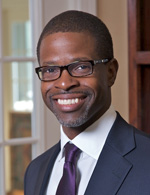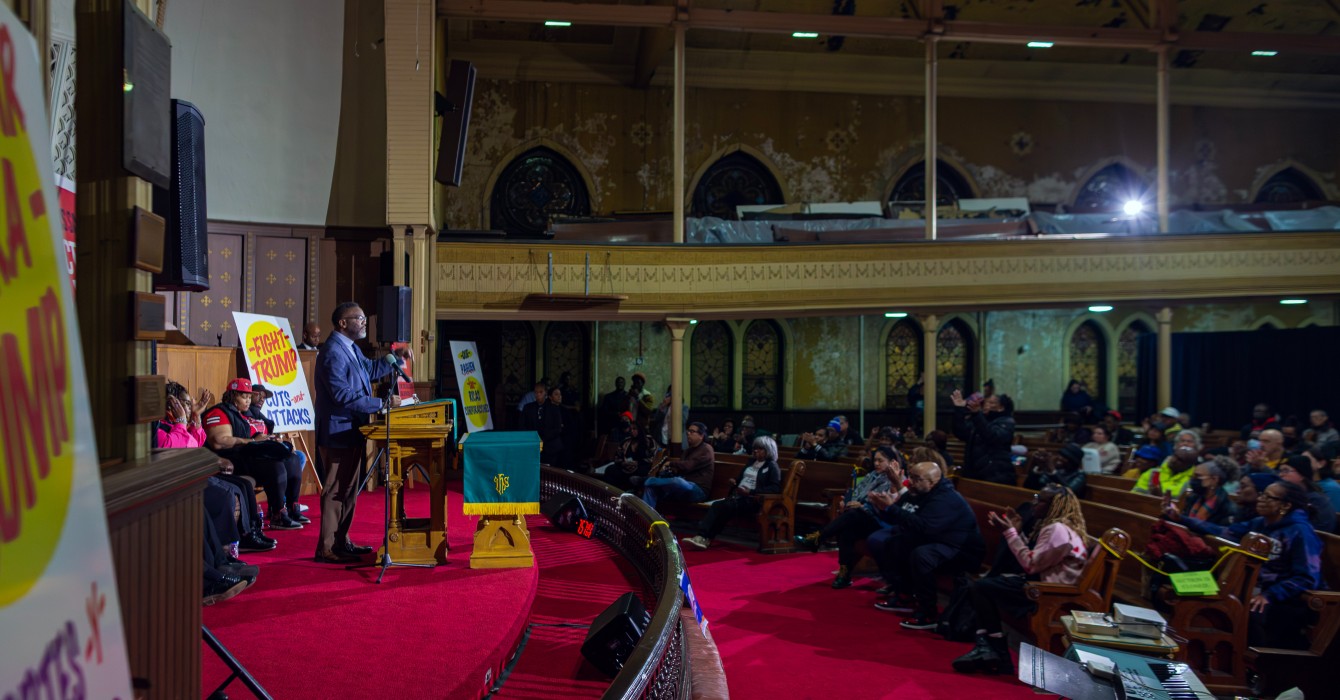The black church was born out of a defiant struggle against oppression and through an audacious affirmation of hope. So when I saw a Baptist bishop wrapped in a Torah scroll and crowned as a king by a Jewish “rabbi,” I knew something had gone terribly wrong.
I watched the scene unfold in a YouTube video you may have already witnessed. Bishop Eddie Long of the 15,000 member New Birth Missionary Baptist Church in Georgia returned to the pulpit after a brief, self-imposed sabbatical. He took time off following allegations of sexual misconduct against seven young men. Long eventually settled the case for an undisclosed sum of money.
Most pastors returning from sabbatical preach a sermon about the joys of communing with God. Some host a coffee hour after worship where they show pictures of themselves walking the Via Dolorosa.
Bishop Long took a radically different approach.
A man identified as a rabbi conducted an elaborate (and apparently fictitious) ceremony in which attendants wrapped Bishop Long in a Torah scroll (a practice which the “rabbi” falsely claims was a part of the coronation of all biblical kings), and draped him in a prayer shawl. Long, seated in a leather chair, was then hoisted into the air and proclaimed to be a king. If Long is a king, I cringe when I think about what that makes the thousands of people who gave him a standing ovation.
There have always been, and I imagine always will be, leaders who abuse power. Many bloggers and reporters have pointed out the egregious problems with Long’s leadership at New Birth and how he handled the allegations of sexual misconduct. What is also disturbing to me is that the people who observed the crowning ceremony had to watch the dismemberment of history.
The “rabbi” held congregants spellbound as he spoke authoritatively about a 312 year old Torah scroll, the rituals of ancient Israel and spurious scientific claims. The event was infused with false memories of history and Scripture. A rabbi crowning Bishop Eddie Long as a king is an example of the tragedy we invite when churches jettison traditions that have shaped and formed us as the people of God.
I am a proponent of change. I also believe that one of the central tasks of African-American churches has been to serve as a repository of the history of a culture and a faith. As I watched this video, I saw culture and faith ripped into shreds.
When you consider the fact that the black church came into existence as an affirmation of a people’s dignity over and against the institution of slavery, it is absurd that a leader of one of the largest black congregations in the United States would participate in a ritual that glorifies a model of authority which, biblically speaking, leads to dehumanization and oppression. How can we forget that the appointment of a king was Israel’s idea, not God’s? God warned Israel that they would regret their request for a king.
One of the opportunities I see for African-American pastoral leaders is to remember our historical (and still significant) calling to honor the worth of people which society regards as “commoners.” (The ceremony elevated Long from “commoner” to “king.”) How can we bridge the widening economic and educational divides in our community without dispensing the empty promises of a “prosperity” gospel?
We have an opportunity to explore critically the models of leadership that will best serve the communities we lead. These communities have and will continue to change economically, demographically, politically and culturally. I find it hard to believe that a monarch is the best paradigm for pastoral leadership. We need socially informed, theologically sound, biblically wise, intellectually honest and spiritually rooted pastors who are willing to wrestle with how to lead an institution and its members to be faithful followers of Jesus Christ in this age.
Besides, what kind of disciples will we be if we replace pastors with kings?
Prince Raney Rivers is pastor of United Metropolitan Missionary Baptist Church in Winston-Salem, North Carolina.







